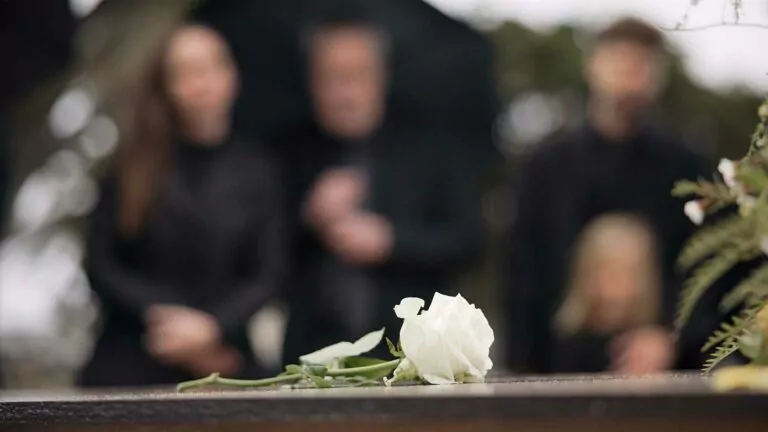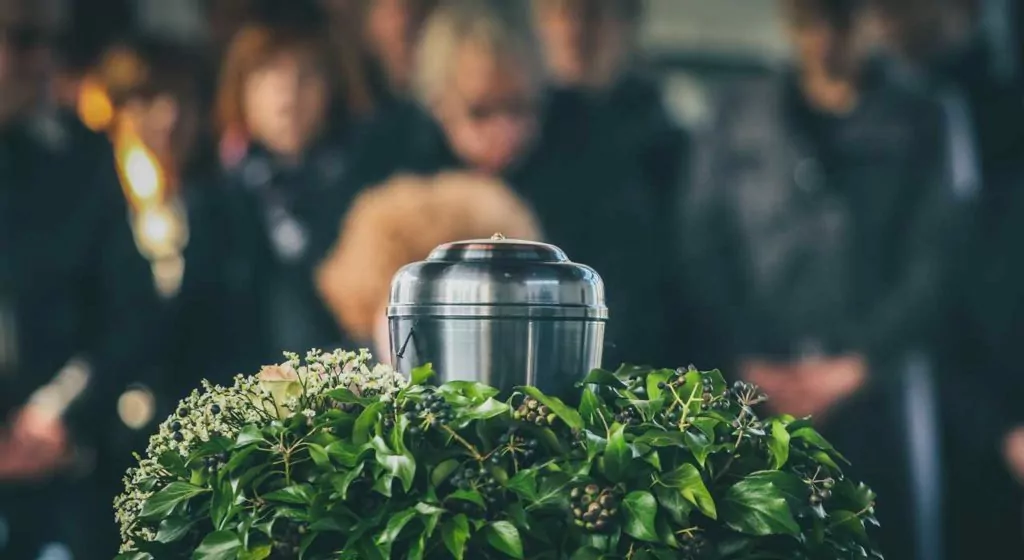Cremation: why and why not
Three things got me thinking about cremation.
One was a phone call from someone asking me if I would like an information package about funerals. This was tacky – a telephone solicitation from a funeral parlor? – but I was so surprised, I found myself saying yes. A week later the package arrived and I discovered that in comparison to how expensive funerals were, cremations could be substantially less so.
The second incident was an email, with a story about a woman who organized her own funeral and asked to be buried with a fork in her right hand. Why a fork? Well, when people saw it she knew they would ask the pastor about it, and that would give him the opportunity to tell them a little story from the woman’s youth. When she was a little child she loved to attend church suppers, and she especially loved it near the end, because just as people were clearing away the dishes, one of the older ladies would always lean over and tell her, “Save your fork!” That would get her really excited because she knew something better was coming – whether it was apple cobbler, or delicious blueberry pie, or perhaps some rich chocolate cake. Whatever it was, she knew it was going to be good. So to her the fork was always a reminder that something better was coming. “When I die,” she told the pastor, “and people ask about the fork, I want you to tell them my story and then tell them the good news – that when you belong to Jesus Christ, you too can be assured that something better is coming.”
I don’t know if this story is true but it got me thinking about how many non-Christians might attend my own funeral. Funerals force people to consider their own mortality, and Christian funerals naturally bring up the idea of immortality so this sort of event can’t help but be evangelistic. The woman in this story took things a step further as she tried to really drive home the gospel message. Her approach was a little strange, but the evangelistic tone of her funeral was intriguing.
The third event was a visit to Arlington National Cemetery. This is the United States’ most famous cemetery, a shrine of remembrance to the country’s honored dead. But for every remembered president buried there, like John F. Kennedy, there are dozens of forgotten generals and thousands of anonymous privates. A row of large statues had me thinking of the Preacher’s cry: “Vanities of vanities” (Eccl. 1). These grave markers were huge, but the men underneath weren’t special enough to be mentioned in my guidebook. The whole thing reminded me of the people today who seek after fame hoping that when they die members of the media will celebrate their life and say things like, “He’ll live on forever in our hearts” and “As long as we remember him, he’s not really dead.” Then, like the pharaohs of old, a giant grave marker will be erected over top of their bodies and their name will be engraved in stone in the hopes that this will ensure their remembrance.
I left Arlington Cemetery depressed. So many people in the world seek after immortality but trade the real thing for a sham.
Immortal for a different reason
These three events left me leaning towards cremation. So far I had three reasons.
First, it would save money.
Second, getting cremated was a stark contrast to the huge grave markers that I had seen in Arlington National Cemetery. I liked that contrast.
Third, cremation would be very much like getting buried with a fork – people would want to know why I did it. And when they asked, the minister could tell them a little story: “At a funeral you will sometimes hear it said that the departed has not really died because ‘he lives on in our memories.’ But if he lives on only in our memories what happens when all the people who remember him die? He’s been cremated and his ashes scattered to the wind so there isn’t even a gravestone to mark his time here on earth. In a short thirty or forty years there will be no memory of him at all, so if his immortality depends on people remembering him, what happens to him then? Well, the Bible tells us that he will still live on, not because people remember him, but rather because Jesus Christ remembers him, and has died for him. Through Jesus’ death on the cross our friend lives, now and forever. This is the real deal, the only type of immortality that endures.”
The case against cremation
After bouncing this idea off a few friends and theological types I soon found out that some Christians are strongly opposed to cremation. It’s true there is no explicit command against cremation in the Bible, but there are still some texts that may apply in a less direct way.
A brief look through Scripture will show that, at the very least, burial was the normal thing to do among God’s people. For example, the Bible specifically mentions that Abraham, Isaac, Samuel and David were buried (Gen. 24:9, 35:29, 1 Samuel 25:1, & 1 Kings 2:10 respectively). Additionally, when Moses died God selected a burial spot for him (Deut. 34:6).
Also, when the Bible talks about fire, and specifically fire burning bodies, it is almost always portrayed in a bad light. In Gen. 38:24 Judah threatens to burn his daughter-in-law to death as a punishment for adultery. This same punishment is prescribed in Leviticus 20:14 for any man who marries a woman, and her mother. In Numbers 16 fire from God consumes 250 rebellious Israelites. The Lord curses Moab in Amos 2:1 “because he burned, as if to lime, the bones of Edom’s king.” The New Testament also links fire with punishment. In Revelations 20:15, for example, those whose names were not written in the Book of Life were thrown into a lake of fire.
Jesus was buried. Combine this with God’s treatment of Moses and we have God burying someone, and God being buried.
There is a lot of symbolism associated with burial that finds its origins in the Bible. For example Col 2:12 talks about how we have been buried with Christ through baptism. There are no similar passages for cremation.
The case in favor
While these texts do at first seem to make a compelling case for burial, there is more still that can be said.
Burial may have been the custom throughout Israel, but there are many Israelite customs we do not follow. We do not, for example, wash our feet after entering someone’s house. Just because something is done a certain way in the Bible, does not mean that God commands us to do it that way today.
While the Bible does talk about burning as punishment, it often refers to it as a way of killing the guilty, rather than as a means of disposing of their bodies. So this really isn’t cremation. If you do want to make the link then it is worth taking a second look at Numbers 16. It is here that the earth swallows up Korah and his household, and all his men. “They went down alive into the grave” (vs. 33). So just as “cremation” can be a punishment, so too can “burial.”
1 Sam. 31:12 recounts one of the very few examples in which cremation is specifically brought up in the Bible, and it is portrayed in a neutral, if not positive light. The bodies of Saul and of his sons are retrieved from the Philistines and burned by the “valiant men” of Jabesh Gilead. (But, as has been pointed out since this article was first published, the next verse, 1 Sam 31:13, then recounts how their bones were buried.)
While fire is often spoken of as a means of punishment, John the Baptist promised that Jesus would baptize people with “the Holy Spirit and fire” (Luke 3:16). Fire is also mentioned positively as a means of refinement (Rev. 3:18). So it seems clear then, that this is symbolic language, and that fire is not, in itself, bad.
Christian stewardship can also be a consideration here since cremation usually costs substantially less than burial– the main saving is in the cheaper casket and the fact there is no plot to buy. Some people will bury the urn, but that at least means a smaller plot is needed, or the same plot can be shared by more.
Cost is not the most compelling reason, of course. The best case for cremation is really the case for Christian liberty: if there is no scriptural directive on this issue, then each Christian is free to follow the dictates of his or her own conscience.
Conclusion
Cremation seems to be a rarity in our churches so this may not be much of an issue for us today, but when you consider that cremation has gone from 4 per cent of Canadian funerals in 1961 to 46 per cent in 2001, it’s clear we will have to think about it soon. It’s best then to discuss this issue now, rather than when it is forced on us. If you have any thoughts on cremation, or have any points or arguments you would like to contribute, please send me a note.
For further study, Christian resources on (and primarily against) cremation
Dr. Nelson D. Kloosterman argues against in "Cremation."
Justin Dillehay makes the case against in "Cremation or Burial: Does Our Choice Matter?"
Stephen Kneale responds to the article above in "Cremation or burial: why I’m not convinced it matters nearly as much as some think."
Paul Carter argues that it is not a sin, but that burial may be a better gospel witness in "Should Christians get cremated?"
This article first appeared in the June, 2003 issue....









